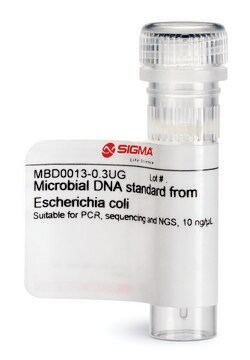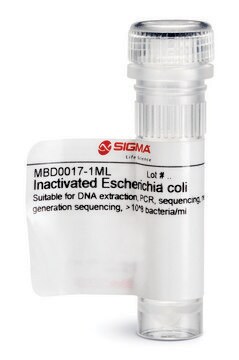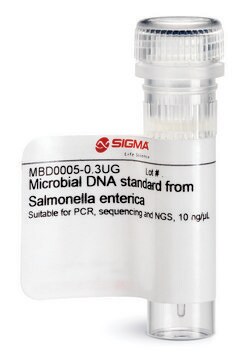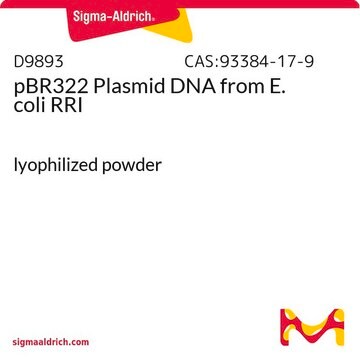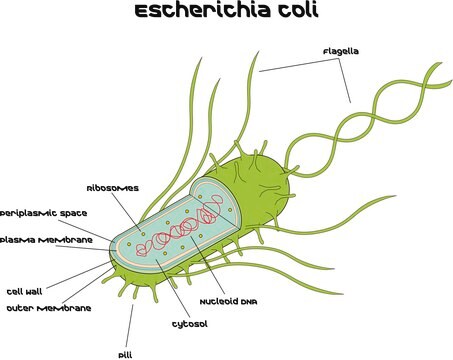IRMM449
Genomic DNA of Escherichia coli O157 (EDL 933)
IRMM®, certified reference material
Sign Into View Organizational & Contract Pricing
All Photos(1)
About This Item
UNSPSC Code:
41116107
NACRES:
NA.24
Recommended Products
grade
certified reference material
agency
IRMM®
manufacturer/tradename
JRC
application(s)
genomic analysis
format
neat
storage temp.
−20°C
General description
Certified for Genomic DNA Eschericha coli O157, strain EDL 933 confirmed by fliC gene.
IRMM-449_cert
IRMM-449_report
IRMM-449_cert
IRMM-449_report
Analysis Note
For more information please see:
IRMM449
IRMM449
Legal Information
IRMM is a registered trademark of European Commission
Storage Class
11 - Combustible Solids
wgk_germany
WGK 3
flash_point_f
Not applicable
flash_point_c
Not applicable
Choose from one of the most recent versions:
Certificates of Analysis (COA)
Lot/Batch Number
Sorry, we don't have COAs for this product available online at this time.
If you need assistance, please contact Customer Support.
Already Own This Product?
Find documentation for the products that you have recently purchased in the Document Library.
Customers Also Viewed
James F Parsons et al.
Acta crystallographica. Section D, Biological crystallography, 64(Pt 5), 607-610 (2008-05-06)
The electron carrier menaquinone is one of many important bacterial metabolites that are derived from the key intermediate chorismic acid. MenF, the first enzyme in the menaquinone pathway, catalyzes the isomerization of chorismate to isochorismate. Here, an improved structure of
Berenice Talamantes-Becerra et al.
Journal of microbiological methods, 160, 11-19 (2019-03-22)
Bacterial identification methods used in routine identification of pathogens in medical microbiology include a combination approach of biochemical tests, mass spectrometry or molecular biology techniques. Extensive publicly-available databases of DNA sequence data from pathogenic bacteria have been amassed in recent
Bianca J Lam et al.
Nature biotechnology, 27(3), 288-292 (2009-02-24)
RNA enzymes have been developed that undergo self-sustained replication at a constant temperature in the absence of proteins. These RNA molecules amplify exponentially through a cross-replicative process, whereby two enzymes catalyze each other's synthesis by joining component oligonucleotides. Other RNA
Our team of scientists has experience in all areas of research including Life Science, Material Science, Chemical Synthesis, Chromatography, Analytical and many others.
Contact Technical Service